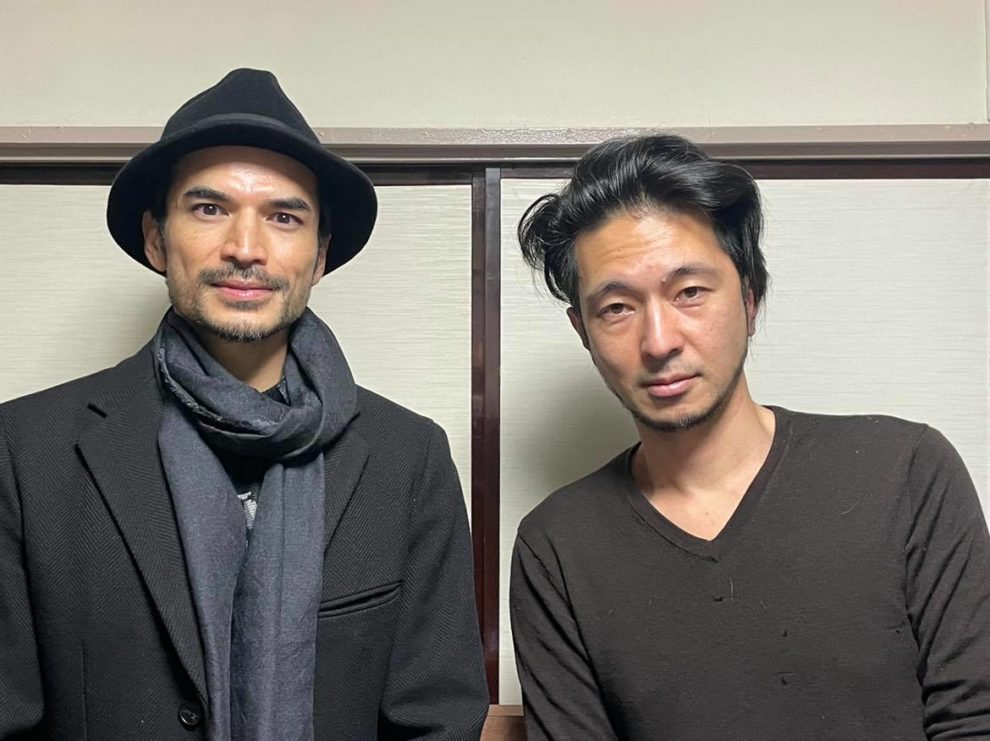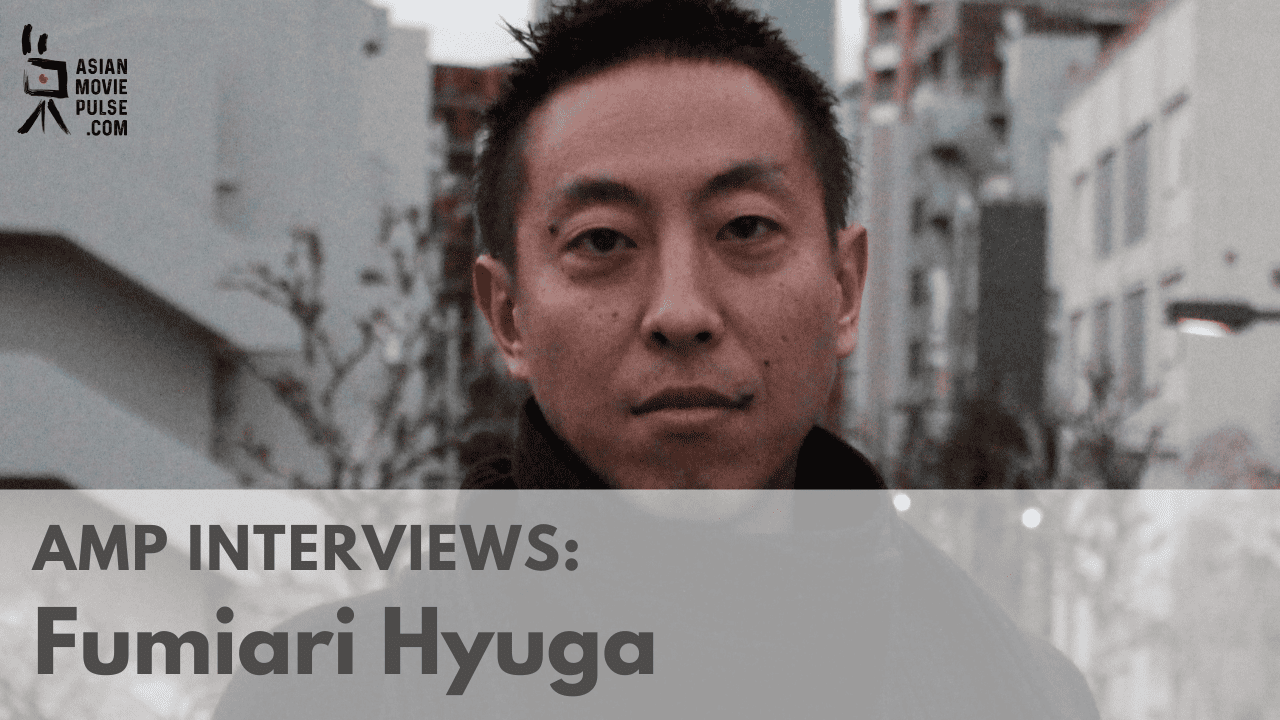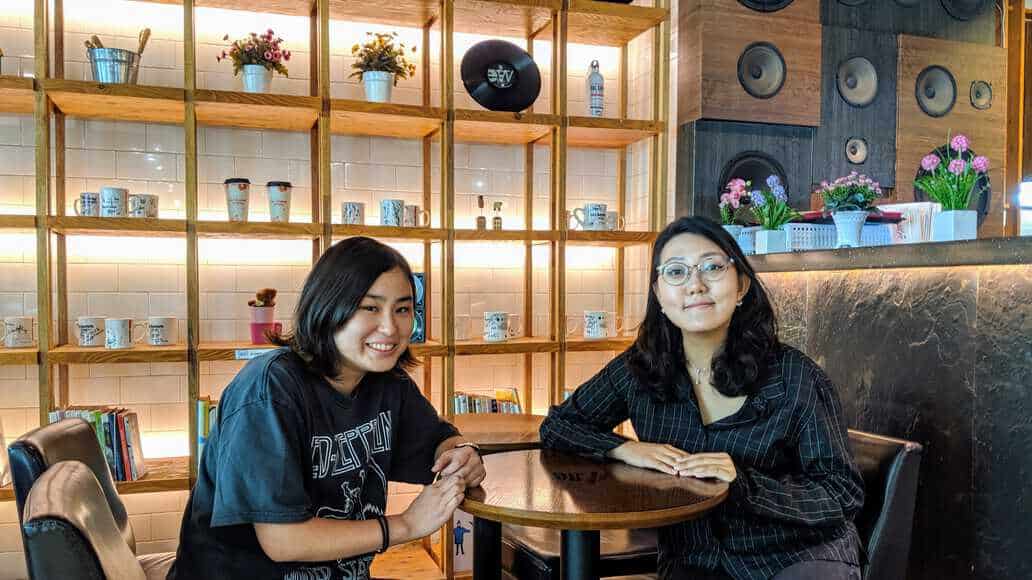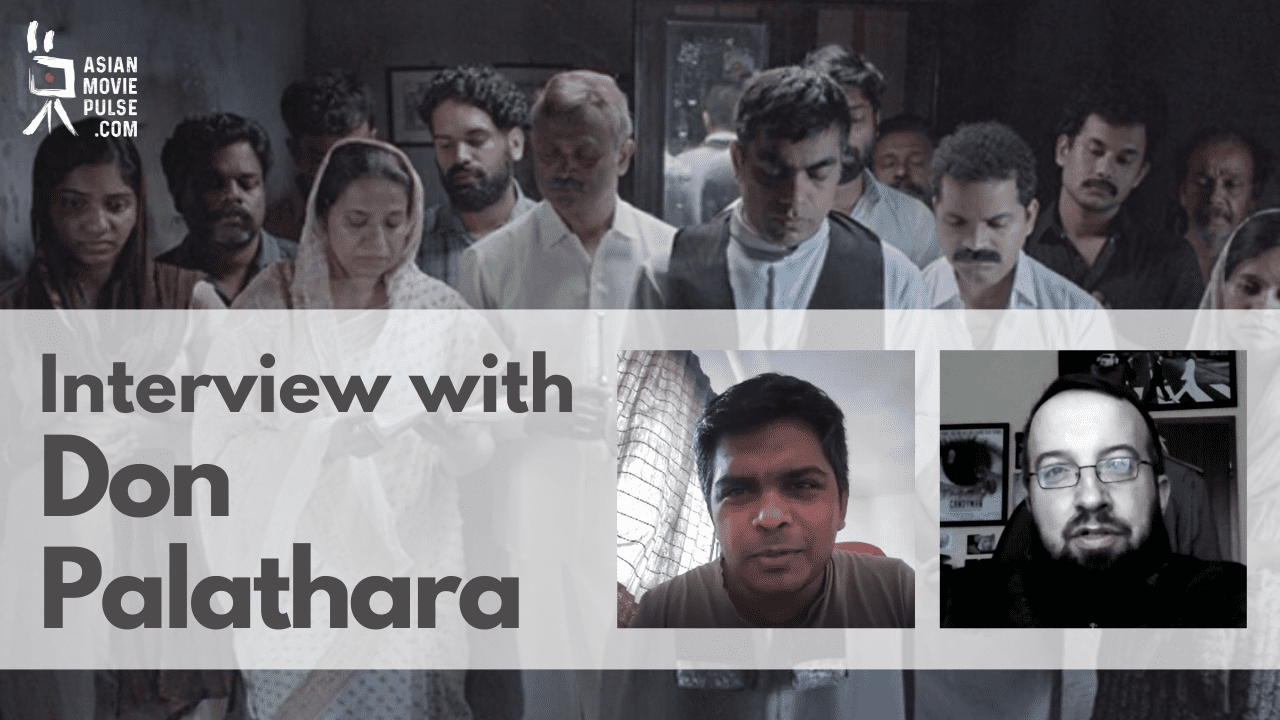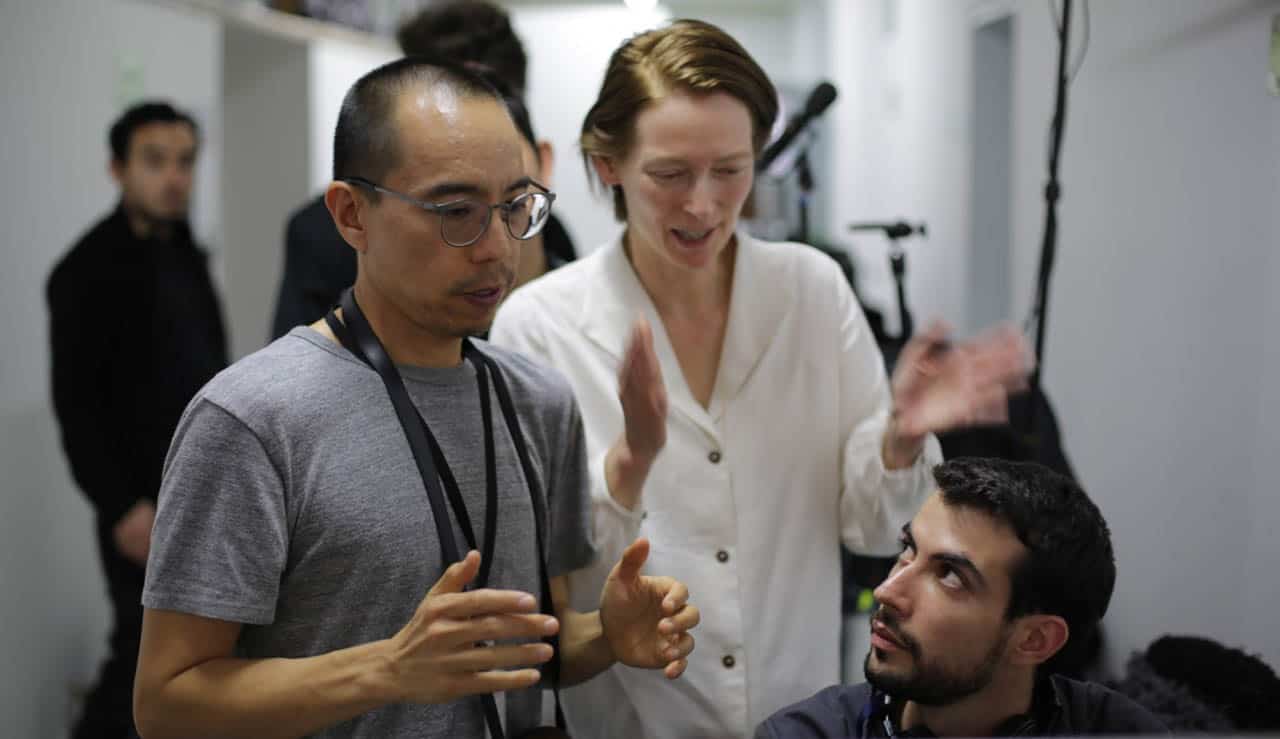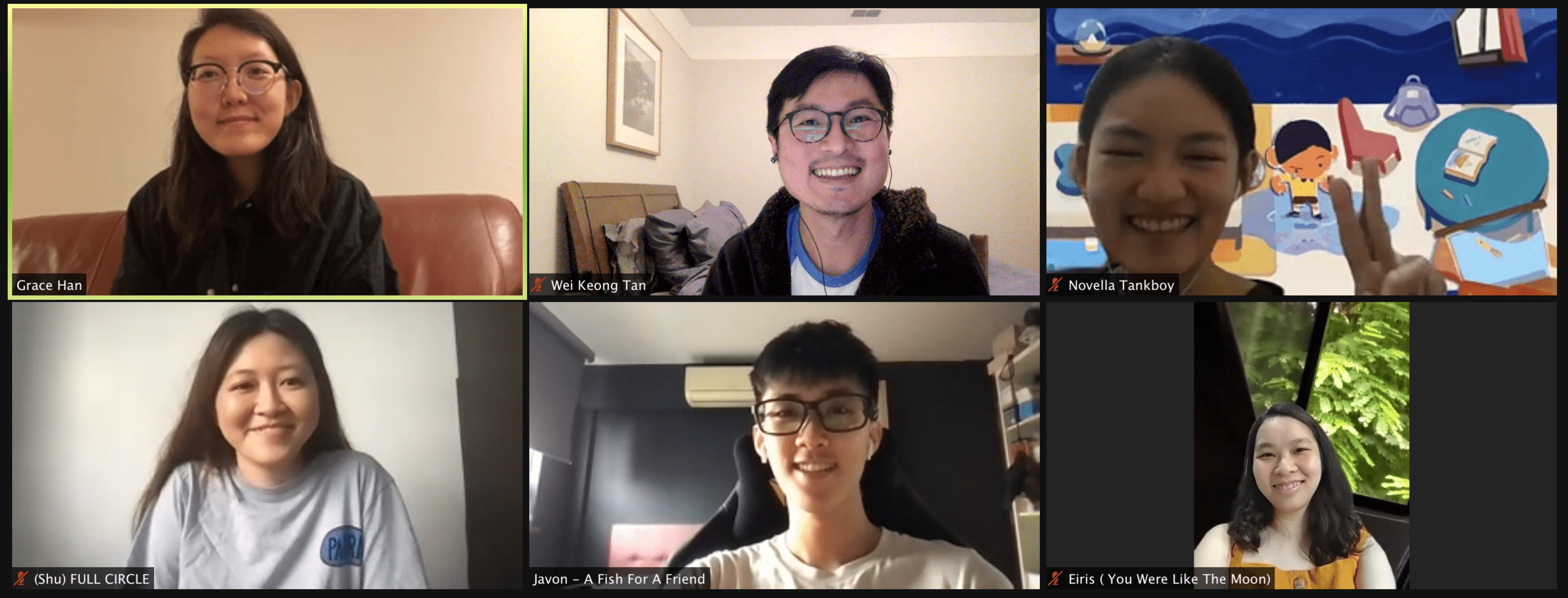Filmmaker YOSHIDA Kota (1978, Japan) was educated at Waseda University and studied filmmaking at ENBU Seminar. His short film “Coming With My Brother!” (2006) received the Jury Special Award at Yubari International Fantastic Film Festival. Domestically and internationally, Yoshida continued to gain recognition. In 2010, he received the Special Mention Nippon Visions Award at Nippon Connection for “Yuriko's Aroma”, and “Come As You Are” (2011) was nominated for the International Feature Competition at Raindance Film Festival. His short film “Kyojima 3rd St., Sumida City” screened at IFFR in 2012. “Love Disease” (2018) was awarded Best Actor at Asian Film Festival Roma.
Shogen modeled in Europe while backpacking around the world after graduating from college. He returned to Japan in 2004 and started his career as an actor. The debut film was “Bloody Snake under the Sun (2005)” which described the life in Okinawa in the postwar period. Shogen starred as a sanshin player and the film itself was nominated for the Competition at the 20th Tokyo International Film Festival. In 2008, he moved to New York to train acting at Blacknexxus (Susan Batson Studio). Today Shogen is now actively taking part in various films around the world. He's known for Young Goken in “Street Fighter:Assassin's Fist” and Raye Penber in “Death Note”. He starred in Brillante Mendoza's new film “Gensan Punch”.
On the occasion of “Sexual Drive” screening at International Film Festival Rotterdam, we speak with them about the connection between food and sex, the inspiration behind the characters and the three episodes that comprise the movie, the function of Kurita, eating food you do not like, and many other topics.

I am going to cut to the chase. What is the connection between food and sex?
To put it simply, it is the same, food and sex. I did not want to depict eroticism or sex directly but instead sex through food, which I feel has the potential to stimulate the imagination even more.
Why did you choose not to include any sex scenes in the film though?
For many reasons. In fact, in my previous films, I did include many sex scenes, but for this one, I wanted to be more suggestive in conveying sex through food, through smell. I feel this approach has the potential to broaden the imagination of the audience more so than showing sex directly. Another reason is because casting becomes more difficult when there are sex scenes, in Japan at least. For this film, I wanted to be more free in my choices regarding the actresses in particular.
Can you tell us about the inspiration behind each of the three episodes and the reasons you chose these three specific foods?
To put it simply, these three are among my favorite choices in food. To be more precise, let me explain for each individual food-episode. “Natto” (the first episode) is a distinctly Japanese food, and it is also known for its stickiness and intense smell. I wanted to convey its potentially erotic elements through that episode.
Regarding “Mapo Tofu” (2nd episode), its most common version eaten in Japan is an instant one, one that you can buy in the supermarkets, it is quite sweet and seems to be for children really. However, Mapo Tofu is originally from China, and when I shot in location there, I experienced the original thing and I realized that is very spicy. That is why I decided to make an episode that shows this difference, as well.
“Ramen with extra back fat” (third episode) focuses on the culture of this particularly ramen, a really gravy one, which is usually eaten in restaurants almost in silence. This is not exactly a rule but there is this kind of atmosphere and feeling that you have to focus on the taste and the smell of the food. That is the setting where I placed the last episode of the film.
Kurita has this function, that makes him appear almost like an angel but also like a demon at the same time. What is his function within the narrative?
First of all, Kurita's name is a reference to a sexual innuendo, in Japanese it basically means a woman's clitoris. Kurita has this role that he brings out the inner secrets of the other characters. Essentially, he reflects my own philosophy, as I try to see things from below, not necessarily from above, as maybe someone who is homeless might see a situation or a character.
Is what he says, about having sex with the with the women the men in the film have relationships with, the truth? Or is he lying?
He could be telling the truth, but he could also be playing a trick. I wanted him to have this kind of abstract, ambiguous presence and whether he exists or not is up to the audience to decide. Whether he is telling the truth or not, it is also up to the audience. In “Natto” for example, what he says has a truth in it, from the perspective of the man in the episode.
All the other characters in the film are good looking. Kurita, however, is not, he is not attractive in any way. Was that a conscious choice on your part?
It is indeed deliberate, the actor who plays Kurita, Tateto Sherizawa, is an actor with a very distinct look, one that I like very much. What I wanted to do with this approach, for example in “Natto”, I wanted to have that question, that doubt in people's minds and also in the mind of the other characters in the movie, “how is it that this person slept with my wife, it is not possible”. I wanted to explore this doubt in this episode. This contrast of the outer look and the inner being, this kind of difference in the potential attractiveness is another thing I wanted to explore, and play around with the contrast of a man who looks beautiful versus a man who does not so much.
Why does he carry a candy box with sweet chestnuts with him though?
In Shibuya, the iconic zebra crossing, there is a traditional, kind of old fashioned sweet chestnut shop. It stands out because it feels like it does not belong there, since Shibuya is a very modern area of Tokyo. I wanted to explore that contrast. Kurita also seems like he does not belong there, he is almost like a homeless person, which is another contrast I played with.
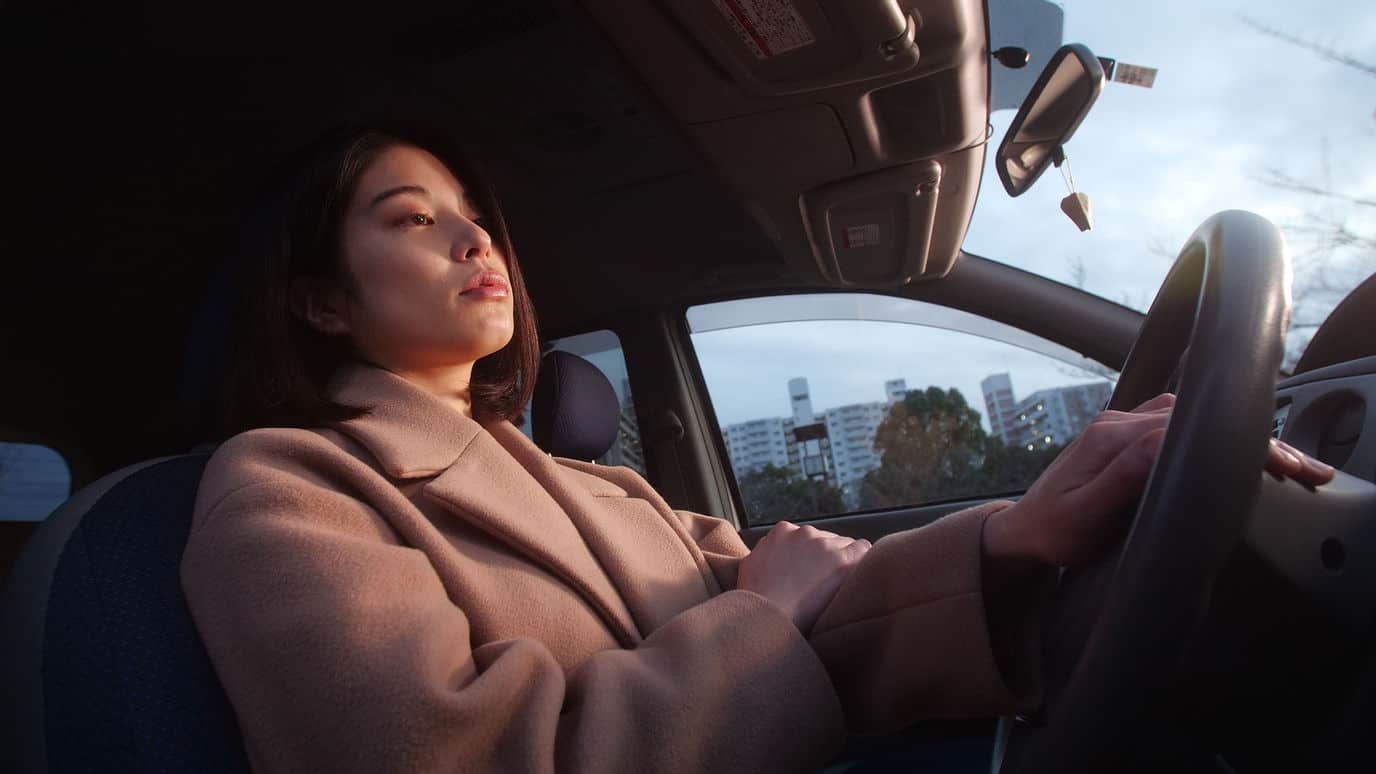
Shogen, how did you feel about eating that particular type of ramen in the movie? In general, how did you feel about the role?
Shogen: To be honest, I am not a fan of that fat ramen, actually it was the first time I tried it, when we were shooting. So, Ikeyama's (the protagonist of the third segment) first sipping was my first sipping. I had to finish two bowls during the shooting, so that was a tough moment, and my reaction in the film is quite real. Regarding the role, there is this unique essence of comedy the Japanese have, but I did not want to go in that direction too much, I felt that I also wanted to be serious partly, have a balance between the two.
Your character has to communicate intense feelings, without speaking though. Was that difficult for you?
It was very difficult, yes. I also communicated with Rina Takeda, my co-protagonist in the segment, through Facetime, because we did not have time, since the shooting just lasted for two days, so that was also very difficult.
In the third segment, there is this montage sequence, where the two protagonists eat at the same time. Can you tell us a bit more about its significance?
With that scene, I wanted Momoka and Ikeyama to link, in the sense that he feels what she is feeling when she is eating ramen and connect with that feeling.
In the first segment, if it was to continue after its actual ending, what would happen with the couple, would they fight, divorce or stay together?
They are just going to have a lot of sex. (laughter)
Can you tell us a bit more about the casting of the film?
I had the particular actors in mind ever since I started writing the script, so already at the script-writing level, I was trying to link them together. I wanted to cast actresses that draw out the essence of the food of the episode they were going to star in. So, for example Manami Hashimoto, in the first episode, I felt has this kind of inner eros that I wanted to draw out, through the sticky and smelly natto. For Honami Sato, from “Mapu Tofu” I felt that she might have an inner sadistic quality, some of sort of violence that I wanted to draw out . Rina Takeda, in the third part, usually stars in action films, but in this segment, I wanted to bring out her inner desire that I feel she didn not have the chance to explore in her other roles.
Has the film been released in Japan yet?
Not yet, but Fortissimo Films just acquired the rights to world sales and will be handling that.
Can you tell us a bit about your future projects?
I have several projects on the go, but the one who is closer to completion is rather close in theme and approach with “Sexual Drive” in that it depicts eroticism indirectly. It is going to be a feature film centered on two women and the professions of massage and aromatherapy.
Shogen: We are to finish the shooting of “Gensan Punch” by Brillante Mendoza. We were supposed to be done, but the director wants to shoot some additional scenes, so he has asked us to come back to Manila, for four days. That is why I still have to train in boxing, actually even today, I just came from the gym. I also I might have another project with the same producer, Takahiro Yamashita, but I cannot reveal anything more about it.
So, how was the experience of working with Brillante Mendoza?
Shogen: It's definitely one of the most memorable experiences of my life, I still cannot believe that it happened to me. I am overwhelmed, that is all I can say.


